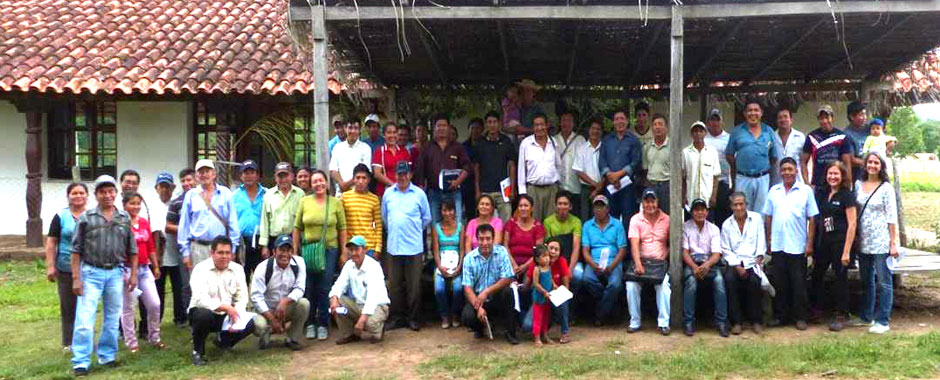by Adrian Ely (co-lead, ‘Pathways’ Network), with contributions from Joanes Atela, Mirna Inturias, Dylan McGarry, Iokiñe Rodríguez & Patrick Van Zwanenberg
Working with the World Social Science Council’s ‘Transformations to Sustainability’ programme brings the privilege of engaging with an incredible range of scholars and practitioners from across the globe. The programme’s three transformative knowledge networks have been working together to exchange experiences and insights by participating in each others’ meetings and contributing to annual programme workshops. In early June I was in Beirut, attending the annual meeting of the ACKnowl-EJ network, which focuses on community responses and resistance to extractive industries and projects, as they analyse and compare their findings from India, South Africa, Malawi, Turkey and Bolivia.
In learning of the ACKnowl-EJ activities in each of these countries, I have been struck by the similarities and differences in our networks’ approaches. Beyond the grounded academic-activist co-production that is the focus of the TKN, the ‘alternatives’ and ‘conflict’ transformations frameworks that have been formulated by ACKnowl-EJ members resonate in many ways with the pathways approach and the ways that it has been adapted in our own network.
I’ve been particularly struck by the ways in which many of us are convening diverse stakeholders, and attempting to bridge different worldviews and framings in our work on transformations to sustainability. These different worldviews may be held by members of the same or related communities, or very different actors involved in large-scale change.
For example, ACKnowl-EJ colleagues Iokiñe Rodriquez and Mirna Inturias have been working with a group of Latin American academics, ‘Grupo Confluencias’, to support communities in the Lomerio Indigenous Territory in Bolivia. Lomerio obtained land rights in 2006 and is now working towards autonomous systems of governance.
Previous generations of leaders identified several platforms of struggle that have led to this point, and suggested that this history is not necessarily appreciated by the youth within the territory. On the basis of the communities’ wishes, colleagues have convened older and younger generations of people from the territory in order to enhance understanding between them.
Aside from providing a safe space to work through tensions or conflicts, researchers can also break down some of the power asymmetries inherent in transformative change. The same ACKnowl-EJ team have for example, served to bridge between the concerns of CICOL (the formal organisation in charge of the indigenous territory) and the concerns of public policymakers (e.g. Ministry of Autonomy), whilst at the same time highlighting CICOL’s visibility at the national level.
At the meeting in Beirut, Dylan McGarry, of the T-learning TKN, described some of their work with transgressive learning methodologies across their nine sites, specifically with communities near Fuleni, South Africa’s second biggest national park, as they resist the expansion of coal mining into their areas. In this case, groups with conflicting views were brought together following a period of initial ethnographic research with the community members. The team used ‘Empatheatre’, a method in which they took different narratives from the research phase and reflected them back in order to break down misunderstandings and conflicts and build solidarity.
Much of our research in the ‘Pathways’ Network also involves identifying different subjective framings and understandings of socio-techno-ecological systems and trying to bridge between them (and to connect ‘up’ to policy processes).
Our colleagues in Argentina have explored the challenges facing the country’s seed sector, and asked how new alliances of actors might be fostered in order to contribute to enhancing agricultural biodiversity. They conducted a pilot Q-method study in order to map different discourses around seeds and sustainability, and used this to design a ‘Transformation lab’ (T-lab) in which they convened a wide range of actors from members of Via Campesina, peri-urban agro-ecological producers, public and private sector seed breeders, government officials, specialists in intellectual property law, seed industry trade associations, to members of Congress’s agriculture commission. They will continue to explore and prototype the policy options and practical interventions identified on the basis of this work.
Within a very different context, our colleagues in the Africa Sustainability Hub at the African Centre for Technology Studies (ACTS) have convened multiple stakeholders from the energy sector to explore the role of mobile-enabled pay-as-you-go solar energy in Kenya’s energy transformations. Alongside research that has explored the potential of solar (pdf), our ACTS colleagues convened a T-lab that brought together state actors trying to secure its access to on-grid energy markets, and the off-grid solar industry. The stakeholders acknowledged that there are different framings and underlying interests in the solar energy prospects, and that these different interests need to be bridged if solar is to become a sustainable energy option for Kenya. Bridging these different framings, the team in Kenya is helping to explore policy options that can harness both approaches to deliver access to low carbon energy.
The combination of research, convening across different framings and ‘bridging’ with formal policy processes provides a basic toolkit for researchers aiming to understand and contribute to processes of transformative change. The grounded experiences of the Transformations to Sustainability programme can provide deep insights into these processes across very diverse contexts.
The Pathways Network’s experimentations with ‘T-labs’ can be compared and contrasted with the activities and frameworks of our sister TKNs, revealing many synergies. We are looking forward to discussing these with colleagues from T-learning and ACKnowl-EJ at our next meeting in Scotland in September this year following the ‘Transformations 2017’ conference.
